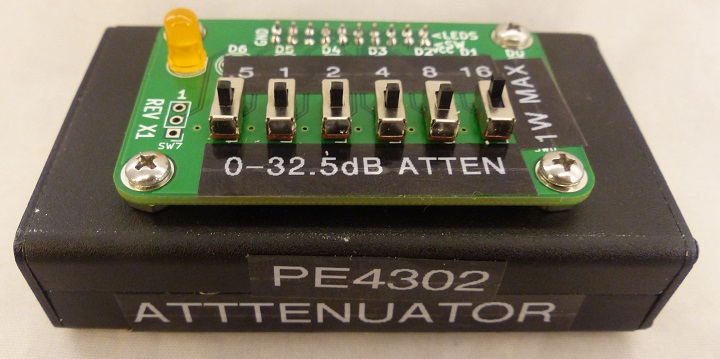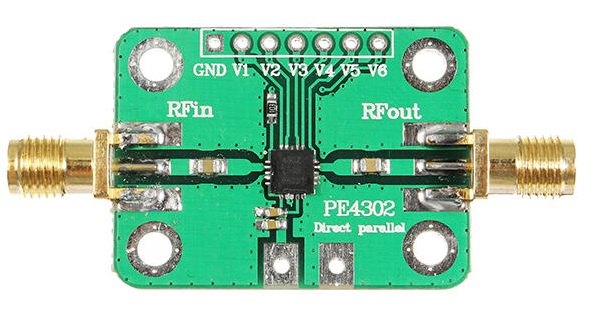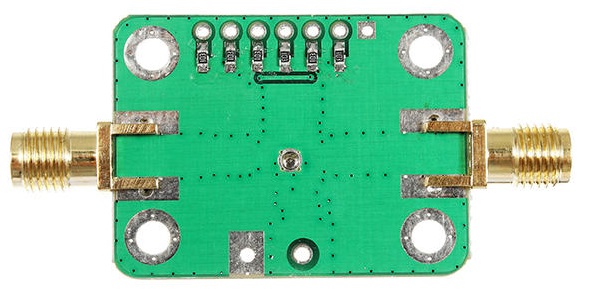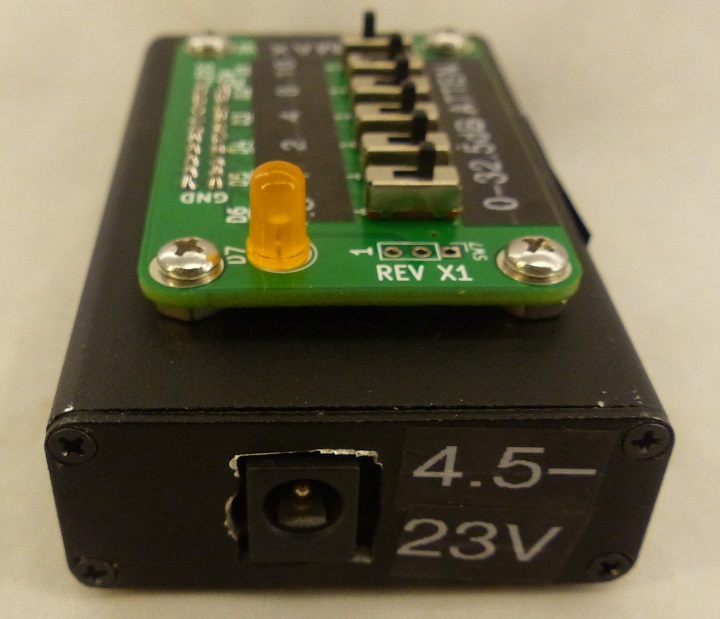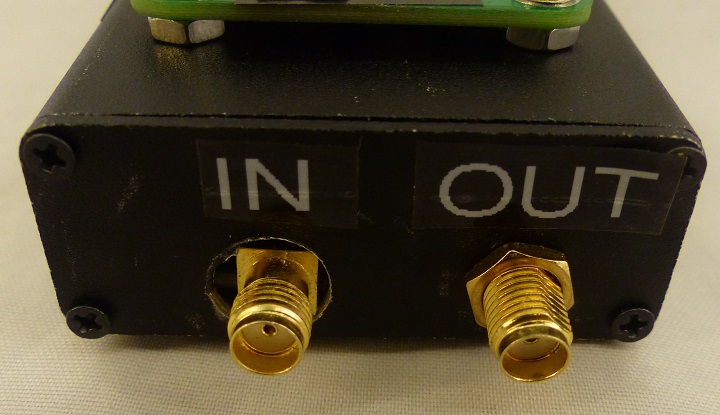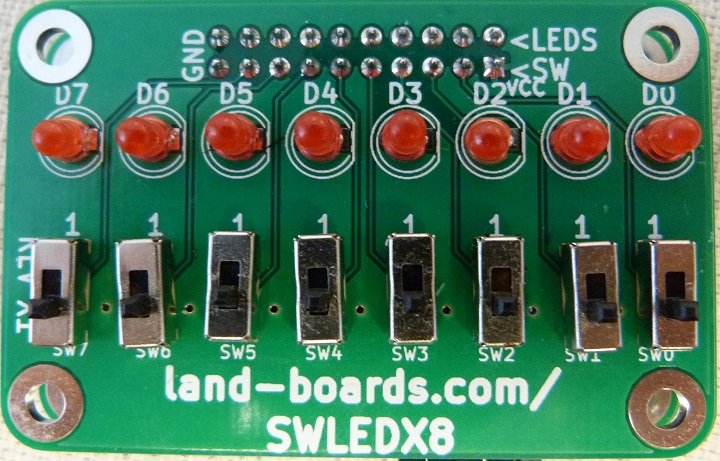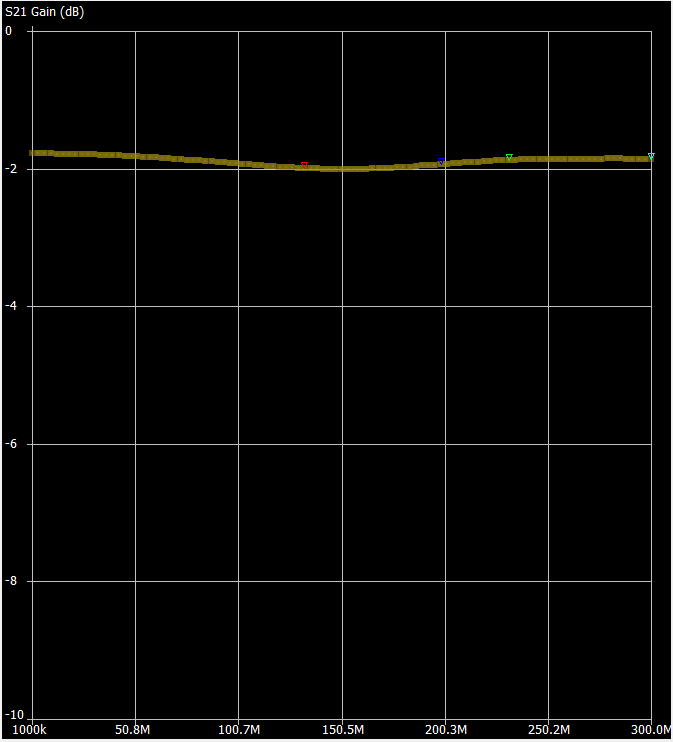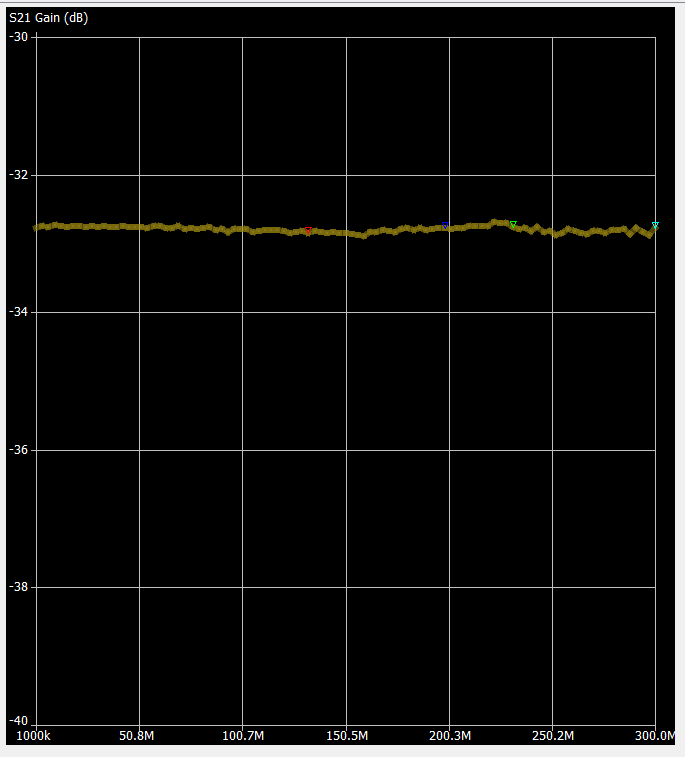Difference between revisions of "PE4302 RF Attenuator"
Jump to navigation
Jump to search
Blwikiadmin (talk | contribs) |
Blwikiadmin (talk | contribs) |
||
| (10 intermediate revisions by the same user not shown) | |||
| Line 1: | Line 1: | ||
| + | [[file:PE4302_P1833-720px.jpg]] | ||
| + | |||
| + | == Features == | ||
| + | |||
| + | * [http://www.west-l.com/uploads/tdpdf/yqperegrine_hf-switch-pe4302_en.pdf PE4302] RF attenuator module | ||
| + | |||
[[File:RF_Atten-Front-01.jpg]] | [[File:RF_Atten-Front-01.jpg]] | ||
[[File:RF_Atten-Rear-01.jpg]] | [[File:RF_Atten-Rear-01.jpg]] | ||
| − | |||
| − | |||
| − | |||
* Parallel immediate mode | * Parallel immediate mode | ||
* Program control gain attenuation range is from 0 to 31.5dB | * Program control gain attenuation range is from 0 to 31.5dB | ||
| Line 30: | Line 33: | ||
** SMA-female | ** SMA-female | ||
| − | == My | + | == My Build == |
| + | |||
| + | [[file:PE4302_P1833-720px.jpg]] | ||
| + | |||
| + | [[file:PE4302_P1831-720px.jpg]] | ||
| + | |||
| + | [[file:PE4302_P1832-720px.jpg]] | ||
* A lot of designs use Arduino/OLED, etc to control the card - unnecessary | * A lot of designs use Arduino/OLED, etc to control the card - unnecessary | ||
| Line 39: | Line 48: | ||
** Board connector for one SMA | ** Board connector for one SMA | ||
** Short cable male SMA to SMA female bulkhead SMA for other end | ** Short cable male SMA to SMA female bulkhead SMA for other end | ||
| − | * | + | * PE4302 remove straight header, replace with right angle connector over card |
* [[Mini360 Adapter Board]] for wide input voltage range | * [[Mini360 Adapter Board]] for wide input voltage range | ||
** 4.75-23V input | ** 4.75-23V input | ||
| Line 65: | Line 74: | ||
* NanoVNA | * NanoVNA | ||
| − | * 1-300 MHz | + | ** Sweeping from 1-300 MHz |
* All switches set to GND | * All switches set to GND | ||
| − | * | + | * Approx 2 dB insertion loss |
| − | + | * S21 Gain zoomed in | |
| − | |||
[[file:SW_All_0s-ZoomedIn.PNG]] | [[file:SW_All_0s-ZoomedIn.PNG]] | ||
Latest revision as of 01:03, 13 September 2021
Features
- PE4302 RF attenuator module
- Parallel immediate mode
- Program control gain attenuation range is from 0 to 31.5dB
- Bandwidth 1MHz to 4GHz
Specifications
- Power Supply Voltage
- 2.7-3.3 VDC - 3V typical
- Typical current 5mA
- Program control gain attenuation range
- 0~31.5DB
- 10K pull down resistors to ground
- Step size: 0.5DB
- Input/Output Impedance
- 50 ohm
- Bandwidth
- 1MHz~4GHz
- Attenuation value will differ under different frequency
- Max Input power (50Ω)
- +30 dBm
- 1W = 7.1V RMS
- Connectors
- SMA-female
My Build
- A lot of designs use Arduino/OLED, etc to control the card - unnecessary
- Could add noise from OLED
- Doesn't need to switch too often
- Mount in small 80mm x 50mm x 20mm project box
- SMA connectors
- Board connector for one SMA
- Short cable male SMA to SMA female bulkhead SMA for other end
- PE4302 remove straight header, replace with right angle connector over card
- Mini360 Adapter Board for wide input voltage range
- 4.75-23V input
- 3V output
- Concern over EMI?
- Right angle connector 2x3 min
- Use SWLEDX8 to control attenuation selection
- Right angle 2x10 under card for low profile installation
- Use SW1-SW6 switches (centered horizontally on card)
- Digital Input High 0.7xVDD in V = 2.1V
- Using 1.2K-1.5K pullup to counter the 10K pulldowns on the card = 2.6V
- When switch is on/low - 3V / 1.5K = 2 mA
- Adds to current 2 mA x 6 = 12 mA when all switches are low
- Use D7 for power indication
- Vf = 1.8V, 3V-1.8V = 1.2V, 3 mA for lower light level - use 470 ohm resistor
- Cabling
- 1x7 pin PE4302 connector (Use 1x8, ignore 8th pin)
- 2x10 Dupont connector for SWLEDX8
- Ground, power to D7 LED, 6 switches
- 2x3 Dupont connector with pins from Mini360 Adapter Board
Measurements
- NanoVNA
- Sweeping from 1-300 MHz
- All switches set to GND
- Approx 2 dB insertion loss
- S21 Gain zoomed in
- All switches set to GND
- Min -1.2 dB insertion loss
References
- DuWayne's Arduino based attenuator
- Hackaday project page
- Peregrine Semiconductor's page - Chip maker
- PE4302 tswfi - Simple attenuator built with PE4302 and Arduino "pro micro".
